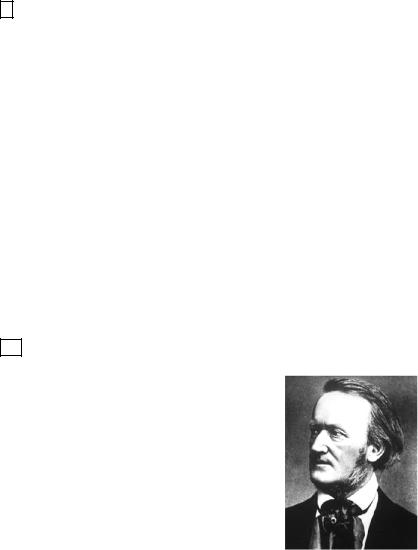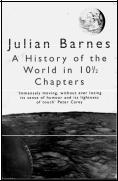
voskresenskaya_e_g_i_dr_sost_sovremennye_angliiskie_romany
.pdf
Chapter 10. The Dream
PRE-READING
Focus Activity 1 Discuss the following questions.
1)Read the title of the chapter. What do you anticipate to read about in the chapter?
2)What do you dream about? What will make you absolutely happy?
3)How is Paradise represented in different religions? What are the main differences and similarities? What is paradise for you?
4)Imagine that you find yourself in the very best heaven you possibly want. What will happen?
ACTIVE READING
Vocabulary Practice
2Find the following words in the text, give their definitions, derivatives and translations. Give the context they are used in.
Pamper; offender; repent; complacently; tenacious
3Find the English equivalents to the following words and
expressions. Give the context they are used in.
Сочный; окружение, антураж, окружающая обстановка; самодо- вольный; самоуверенный; смородина (ягода); неоспоримый факт; у нее слабое сердце; вести образцово-показательную жизнь
4 Give the Russian equivalents to the following English words and word combinations.
Definition of luxury; dodgem; gourmet; assessment; condescending
Comprehension and Discussion
5 Answer the questions below.
1)How does the day of the narrator begin? What things are described as perfect? Why?
171

2)What was so special about the breakfast? About shopping? About the newspaper?
3)How is the supermarket described? Is it a possible institution for the Paradise?
4)What odds did the narrator do during these several days besides going shopping and enjoying wonderful dishes?
5)With whom of famous people does he meet? Whom would you like to meet in such a situation?
6)What problems / worries did he have? What was the reason for them?
7)What is the purpose of including sets of his activities and experiences in the form of a list?
8)How is the old Paradise represented in the dialogue of the narrator and Margaret? What does she say about the Hell? What is Heaven and what is Hell in this chapter?
9)What was the narrator’s idea of heaven? Is it different from what all the people want?
10)Why does everyone “take the option, sooner or later” (p. 368)?
11)Who is represented as the survivors? Why such a division is made?
12)What is the place of this chapter in the history of the world? Why did Barnes choose these episodes for his history?
6Comment on the ending of the chapter. Compare it with the beginning. What is different? Why?
7Make a list of all the links to previous chapters. What is their role?
8What did the narrator experience? In what way does it coincide with the events from the previous chapters? As you read complete the chart below with examples.
The narrator’s |
Events from the previous |
experience |
chapters |
… |
… |
Could the narrator of this chapter experience everything described in the book (the Deluge, the shipwreck, the nuclear bomb explosion, etc.)?
172

9Comment on the following quotations and explain their meaning. Do you agree with them?
1)‘But where’s God?’
‘God. Do you want god? Is that what you want?’ ‘Is it a question of what I want?’
‘That’s exactly what it’s a question of. Do you want God?’ (p. 362)
2)… dreams of heaven used to be a lot more ambitious. (p. 363)
3)… that’s the principle of Heaven, that you get what you want, what you expect. I know some people imagine it’s different, that you get what you deserve, but that’s never been the case. (p. 365)
4)People prefer to get what they want rather than what they deserve. Though some of them get a little irritated that others weren’t sufficiently maltreated. Part of their expectation of Heaven seemed to be that other people would go to Hell. Not very Christian. (p. 365)
5)After a while, getting what you want all the time is very close to not getting what you want all the time. (p. 373)
Creating a Commentary
10Comment on the meaning and usage of the following references and allusions, give the context they are used in.
1)How is bacon rinds cooked in England?
2)Where can a bell-pull be used?
3)Is Leicester only the name of a city?
4)What does the word Runners-up mean in sport sphere?
5)How much champagne can a magnum contain? What is the origin of the word?
6)Who are flunkeys?
7)What is Wagner famous for?
8)Who was Rocky Marciano?
173

Language and Style
11 Translate the following passage.
It was just what I’d expected at first… – and felt a bit nervous I don’t mind telling you (p. 354).
What building is described in this passage? Who is the person, host of it?
EXTENSION ACTIVITIES
12Discuss the following in a group.
1)Paradise: what is it and does it exist?
174

REVISION AND CONSOLIDATION
TEST YOUR VOCABULARY
1 Give the English equivalents to the following words and expressions.
сглаживать неловкости; по чьи-либо подсчетам; отмыть репута- цию; быть невеждой во многих отношениях; слабо разбираться в чем-либо; бывалый, опытный человек; отдать должное, делать честь; широкий взгляд на вещи; девичье имя; отклонение от за- кона; образцовый, достойный подражания; религиозная тради- ция; гнев Божий; не иметь законной силы; скудное знание; свя- щенная книга Бытия; богохульство; разубеждать кого-либо в чем- либо; принимать меры предосторожности; знамение, предвестие; приписывать, относить на счет; некомпетентность, неумелость (2 варианта); самовлюбленность, эгоизм; облегчить, скрасить по- следние моменты; неискушенный взор; суеверие; быть судимым в полном соответствии с законом; укорять кого-либо за что-либо; божественный промысел; стать обузой; поддерживать веру; ко- зырная карта; туз; непредвиденные обстоятельства; разочарова- ние; выравнивание, стабилизация; быть аккуратным, щепетиль- ным; работать не покладая рук; быть соперником, конкурентом; отложить посещение на другой раз; находить прелесть; быть пси- хом, ненормальным; приспосабливаться; начитанные журнали- сты; смородина (ягода); неоспоримый факт; вести образцово-пока- зательную жизнь
2 Give Russian variants of the following English words and word combinations.
fraternizing; revelation; a pious and honourable deed; to grovel to; to malinger; corroboration; to flatter; backstabbing; torpid; to vouch for; diocese; excommunication; to enjoin; volition; hindrance; dominion over; to abrogate; wickedness of mankind; resentment; to track; mink; hoax; hangover; lookout; verdure; consolation; complement; depravity; to convert; delusion; despondency; elation; to deduce; to prefigure; delirium; oblivion; precocity; benevolence; mulberry; simulacrum; credulous; to intercede; impertinent; pertinacity; halo; obsequiousness; maiden voyage; octogenarian; evasion; insane; deliverance; introspection; prophecy; dodgem; gourmet
175

THEMES AND IDEAS
Title
1)How can you interpret the title of the book “A History of the World in 10,5 Chapters”?
2)What is the meaning of use of the indefinite article “a”?
3)Is the translation “История Мира в Деся-
ти с Половиной Главах” correct and does it fully reflect its English variant?
4)How would you translate the title in Russian? Give your own variant.
Chapters
1.The Stowaway
2.The Visitors
3.The Wars of Religion
4.The Survivor
5.Shipwreck
6.The Mountain
7.Three Simple Stories
8.Upstream!
• Parenthesis (unnumbered "half chapter")
9.Project Ararat
10.The Dream
1)Comment on the order of the chapters in the book, their number.
2)Why is “Parenthesis” inserted between the 8th and the 9th chapters? Why did not the author make it the 11th chapter?
3)Comment on the following view of critics, Cristina Sandru and Sean Matthews (2002):
“The multiplicity of discursive genres is also the distinguishing feature of A History of the World in 10 1/2 Chapters (1989); so much so that the work generated lively critical controversy as to whether it was actually a novel at all. Despite its looseness of form, the book does cohere around its persistent questioning of our knowledge of the past. Underlying the variety of narrative voices is a gentle, humane,
176
self-reflexive meditation insisting on the necessary preservation of love as the only viable way of coping with the burden of history – there are echoes of the questioning course and gentle envoi of Philip Larkin's 'An Arundel Tomb', 'What will survive of us is love'.”
Themes
1)What themes are evoked in this book? Find out the quotations confirming each theme.
2)In every chapter the author asks the same thoughtful and provocative questions about human condition and approaches them from different angles. Make a list of these questions. Try to answer them yourself.
Ideas
1)What was the author’s purpose while writing this book?
2)With the help of what means did the author try to show his idea?
3)Read a part of critical review of Barnes’ literary works. Find out the points you can agree with and the ones you can oppose:
I cannot hope, in the limited space I have here, to devote the attention to Barnes’ fifth novel which it deserves. A History of the World in 10 1/2 Chapters is a work about which one could write volumes without exhausting it. The novel itself is comprised of many separate stories (some chapter-length, some shorter) which are con- nected–some more loosely than others–by themes of historical recovery, historical decay, and rescue. Some reviewers have engaged in arguments about whether or not it can legitimately be called a novel, but this is a formal distinction which I will gladly leave to others. Joyce Carol Oates, in her review of Barnes’ History, offers a useful generic distinction in calling it “a gathering of prose pieces, some fiction, others rather like essays”. Almost all of Barnes’ other works are, though postmodern, highly realistic. But A History of the World in 10 ½ Chapters is also a novel which, like all of the novels under discussion here, articulates and demonstrates some of Barnes’ concerns about the writing of history.
Oates identifies one of the important motifs of Barnes’ novel as “connectedness”. Each of the stories that are a part of the History is connected in some, sometimes oblique, way with what has come before and what will come after it. It is an almost Buddhist view of
177
the nature of the world (or, in keeping with Buddhist thinking, the illusion that we perceive as the world). But relying on such connections allows Barnes to include widely ranging subject matter and perspectives. And if they don’t all seem to fit into some sort of narrative, then perhaps that can be seen as part of the point. We are reading here, after all, a postmodern history of the world. Actions, themes, and events resonate and repeat with variations, but there is no divine plan with which to stitch them all together. There is no ending to which the events of this history can be seen to build or conclude, whether that ending is conceived of as the apocalypse (as in the orthodox Christian tradition), the achievement of rational enlightenment (as in Hegelianism), or the end of class conflict (as in Marxism). Any conventional theory of history needs an end or purpose by which to define itself, but Barnes’ theory of history is by no means conventional. While researching for this chapter, I inadvertently came across a lucky connection of my own. An Associated Press story, hiding in the back of a local paper, carried a brief piece titled “Diggers say Jericho didn’t Fall” in which the anonymous reporter tells of an archeological dig in historical Jericho led by Lorenzo Nigro and Nicolo Marchetti, two professors from the University of Rome, who were working as part of the first foreign archeological expedition to the West Bank since the beginning of Palestinian self-rule in 1994. The archaeologists found nothing which would suggest that the city was sacked during the time of Joshua, its biblical conqueror. In response, a Palestinian envoy to Italy, Nemer Hammad, said that he hoped the expedition’s findings would not have negative repercussions and declared that “History must be respected”.
The phrase certainly has an ominous ring to it, but perhaps owing to such a steady diet of Barnes’ fiction, it also hints at another rather unintentional ironic meaning. For while we can certainly agree that history should be respected (especially if that is taken to mean that we should not try to willfully deny that events have happened in the past), there might be considerably less agreement about what the word “history” is meant to signify. Shall we take it to mean (against Hammad’s intent) that we should respect the findings of the archaeologists? Or does it mean we should continue to believe in the story that their finding seems to challenge or overturn? If the dictum were put to us as a question rather than a command, we might be tempted to answer “Yes, but which one?”
178

Summary-plot
1)Do you think it is possible to make a summary of this book? What are the difficulties?
2)Make your 40-word summary.
3)Find blurbs in different editions of this book. Compare them. Make your own blurb to the book “A History of the World in 10 ½ Chapters”.
Role-play
Imagine that you have a chance to interview Julian Barnes. Make a list of questions you would like to ask him? Discuss your list with your partner. Think over possible answers. Make up a dialogue of Julian Barnes and a reader.
Writing
Write an essay: Has this book made me think about life around us?
REFERENCES AND ALLUSIONS
1) What is…? |
|
cloven-footed ruminants |
YMCA |
B-Westerns |
monkey-up-a-stick |
Mumbo-jumbo |
Table d'hôte |
Pinewood |
Biro |
Wright Brothers National |
a $1000-a-plate fund-raising |
Memorial |
dinner |
2) What role in history of the world does … play?
Minoan Civilization |
The Balfour Declaration |
Six Day War |
Pearl Harbor |
Gestapo |
The Battle of Hastings 1066 |
Hiroshima |
Project Mercury |
Project Apollo |
|
|
179 |
3) Who are called…? |
|
Darby-and-Joan |
cock-eyed |
Zionists |
Meritocrats |
flunkeys |
stool-pigeons |
4) Who is …? |
|
Sir Arthur Evans |
Lawrence Beesley |
W.H. Auden |
E.M. Foster |
Wagner |
|
5) What does … mean? |
|
“Hey presto!” |
shift the goalposts |
ship of state running aground |
the good breeding stock |
Never over-egg the pudding. |
|
6) What Biblical story is … connected with?
Tree of Knowledge |
Expulsion |
Annunciation |
Christ’s Passion |
180
